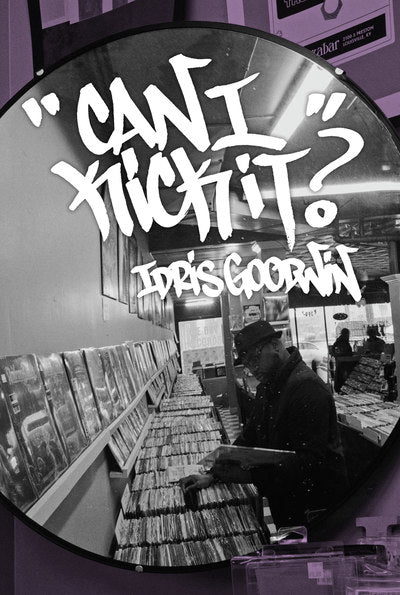Haymarket Books
Can I Kick It?
Can I Kick It?
Couldn't load pickup availability
“Can I kick it?”
“Yes you can!”
—A Tribe Called Quest
Situated squarely in the oral traditions of hip-hop and BreakBeat Poetry, Idris Goodwin’s work bridges the divide between the reader and the poet. Combining the tongue-in-cheek and the irreverent with the melancholy and incisive, Goodwin’s poetry samples and re-purposes pop-culture—from Back to the Future to Prince, Missy Elliot to Dominique Wilkins—in order to reflect and remix the stories we tell ourselves and each other in order to live.
-
“Can I Kick It is an essential text, not just for its imagery, or its lyric, or its commitment to history. But, most importantly, for the way Idris Goodwin, once again, builds worlds. Yes, of course the wordplay is as on point as ever—incisive and playful and still not to be played with. But I can also feel the walls of the house party. I can feel myself in the seats of old movie theaters. And that is the true gift of this book. It creates spaces worth longing for, even if you don’t remember the time when you longed for them.”
—Hanif Abdurraqib, author of Go Ahead in the Rain: Notes to A Tribe Called Quest
“Idris Goodwin is the Chicago cousin of Motown, Hip Hop, and B-Ball. His literary scriptures are rooted in the BreakBeat Poets pedagogical theory and soar in the spirit of the boom bap, the one-two and the cross over. Goodwin's contemporary emboldened eulogies cipher the forgotten founders of hood politics, the crooners in the corner of the juke joint with a precision so clean, his readers sway between the syntax as both witness and worship. These poems name our rising stars (Of the Lord) and our unsung deities (An Ode to Lotion). This text is beyond the truth. This text is a book of questions that will center and servive the political body surviving both PSSD & PTSD, one stanza at a time.”
—Mahogany L. Browne, author of Black Girl Magic, Smudge and Redbone
“Can I Kick It? is an anthem for the generation Idris Goodwin dubs ‘A Tribe Called Tomorrow.’ In this new collection, he charts the topographies of his personal, political, artistic and cultural landscapes, while weaving together ancestral echoes, 80’s pop culture references, Missy Elliot and Isaiah Thomas. All the while, we’re immersed in a soundtrack laced with the rhythms of Gospel, Motown, House and Hip-Hop. It is a nostalgia tinged nod to the past, a chronicling of our chaotic present and a questioning of what is yet to come. In ‘Harriet Tubman to Kanye West’ Tubman advises Yeezy to ‘always rewind/ listen to the voices on the track/ before saying a word.’ With Can I Kick It?, Goodwin not only puts this advice to good use, but embodies it with every line and bar.”
—Mayda A. Del Valle, author of A South Side Girl's Guide to Love & Sex
“Idris Goodwin's poems are funny and searing at the same time. Goodwin is a poet of lyric precision and masterful invention. Ranging from odes to how-to guides to persona poems in the voices of DJ Khaled, Harriet Tubman, and more, Goodwin's book Can I Kick It? reads the way my favorite albums play. Read it straight through. No skips necessary.”
—José Olivarez, author of Citizen Illegal
“Simultaneously an ode to, and embodiment of, Black lyric excellence.”
—Diego Báez, ALA Booklist Starred Review
“Must Read Poetry.”
—The Millions
“Idris Goodwin is true to the BreakBeat tradition, a term he coined himself to describe a particular type of poetics infused with musicality and rhythm. The lines are sometimes swift, sometimes heavy, but there is always a discernible rhythm which propels the reader forward with deliberate, measured pace.”
—Ronnie K. Stephens, The Poetry Question
“The passion and relevance behind Goodwin’s words jump off the page.”
—D'Arcy Briggs, Spring Magazine
Praise for Idris Goodwin’s plays:“Goodwin makes a strong case for hip hop culture as a crucible where issues of racial identity, gender inequity, career ambition, and friendship converge and collide in illuminating ways.”
—The Boston Globe on Hype Man: A Break Beat Play“A grimmer-than-Grimm fairy tale for adults, set up like a rap energized topical cross between Waiting for Godot and No Exit.”
—San Francisco Chronicle on Blackademics


